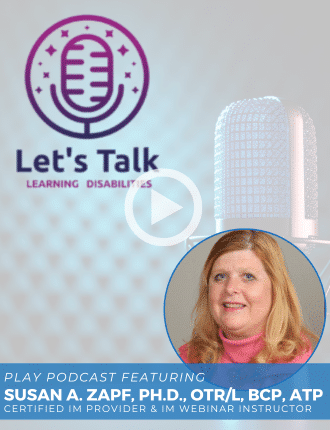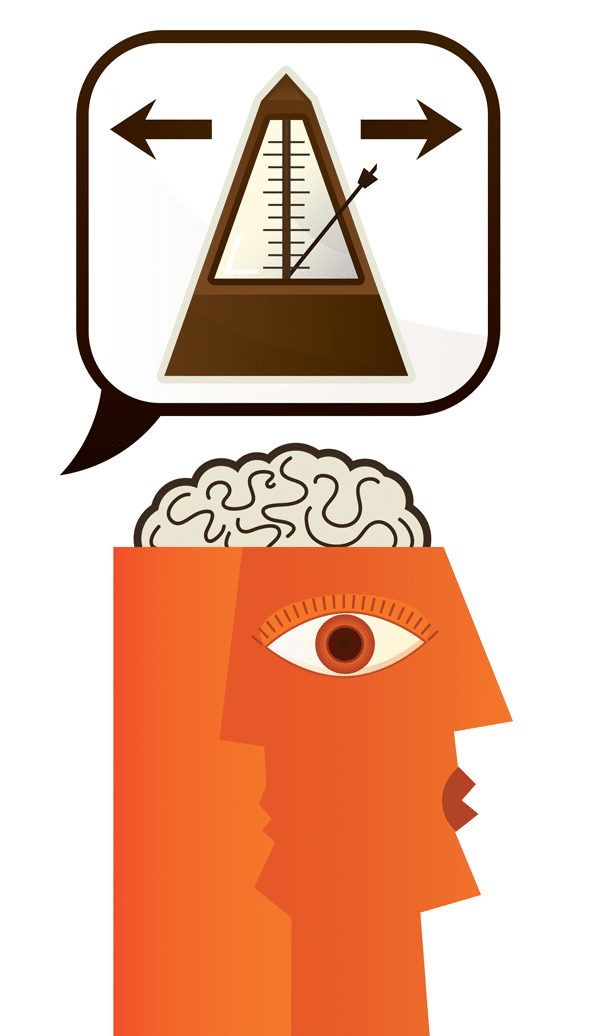Burned Out No More! How IM gave PDD/Autism patient the best school year of her life!
 Erin had a diagnosis of PDD/Autism. She was verbal, but unable to have a purposeful conversation. Her voice was very high pitched, and other children turned away from her when she would go up to them and start reciting lines from various Disney movies or Barney episodes on TV. She had been attending traditional OT/PT and Speech therapy visits for 7 out of her 8 years of life and the family was reaching burn out status, as her progress seemed to be very slow.
Erin had a diagnosis of PDD/Autism. She was verbal, but unable to have a purposeful conversation. Her voice was very high pitched, and other children turned away from her when she would go up to them and start reciting lines from various Disney movies or Barney episodes on TV. She had been attending traditional OT/PT and Speech therapy visits for 7 out of her 8 years of life and the family was reaching burn out status, as her progress seemed to be very slow.
Prior to her discharge, we decided to give one more thing a try. Interactive Metronome. Mom had been reading about progress in attention and focus with children who performed the IM exercises. She wasn’t sure how Erin would do, but since it was summertime and their schedule wasn’t as busy it would be worth the time needed to give IM a try.





 I have had the opportunity of working with many children who are diagnosed with PDD. The diagnosis in general seems to have a very wide range of abilities and areas that are affected. I have found in my area (Northeastern part of the country), that these children seem to fall somewhere between those who are diagnosed with Autism, and those diagnosed with Aspergers Syndrome. So their responses to using the Interactive Metronome have been very similar, with great progress in a shorter amount of time…
I have had the opportunity of working with many children who are diagnosed with PDD. The diagnosis in general seems to have a very wide range of abilities and areas that are affected. I have found in my area (Northeastern part of the country), that these children seem to fall somewhere between those who are diagnosed with Autism, and those diagnosed with Aspergers Syndrome. So their responses to using the Interactive Metronome have been very similar, with great progress in a shorter amount of time… I have had the opportunity of working with many children who are diagnosed with PDD. The diagnosis in general seems to have a very wide range of abilities and areas that are affected. I have found in my area (Northeastern part of the country), that these children seem to fall somewhere between those who are diagnosed with Autism, and those diagnosed with Aspergers Syndrome. So their responses to using the Interactive Metronome have been very similar, with great progress in a shorter amount of time.
I have had the opportunity of working with many children who are diagnosed with PDD. The diagnosis in general seems to have a very wide range of abilities and areas that are affected. I have found in my area (Northeastern part of the country), that these children seem to fall somewhere between those who are diagnosed with Autism, and those diagnosed with Aspergers Syndrome. So their responses to using the Interactive Metronome have been very similar, with great progress in a shorter amount of time. Hanging out with friends after school is a big part of a teenager’s life and is crucial for developing people and communication skills. For those with Autism Spectrum Disorder (ASD), social activity is very rare, especially after school and out of the family circle. This is something that has kept Professor Paul Shattuck of Washington University in St. Louis busy for many years; he says that limited or absent peer relationships can negatively influence health and mental health, especially during this difficult age.
Hanging out with friends after school is a big part of a teenager’s life and is crucial for developing people and communication skills. For those with Autism Spectrum Disorder (ASD), social activity is very rare, especially after school and out of the family circle. This is something that has kept Professor Paul Shattuck of Washington University in St. Louis busy for many years; he says that limited or absent peer relationships can negatively influence health and mental health, especially during this difficult age. Erin had a diagnosis of PDD/Autism. She was verbal, but unable to have a purposeful conversation. Her voice was very high pitched, and other children turned away from her when she would go up to them and start reciting lines from various Disney movies or Barney episodes on TV. She had been attending traditional OT/PT and Speech therapy visits for 7 out of her 8 years of life and the family was reaching burn out status, as her progress seemed to be very slow.
Erin had a diagnosis of PDD/Autism. She was verbal, but unable to have a purposeful conversation. Her voice was very high pitched, and other children turned away from her when she would go up to them and start reciting lines from various Disney movies or Barney episodes on TV. She had been attending traditional OT/PT and Speech therapy visits for 7 out of her 8 years of life and the family was reaching burn out status, as her progress seemed to be very slow.